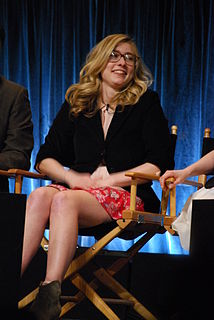A Quote by Ben Katchor
There's something exciting about weekly strips in that you're following the way the story reveals itself to the writer week by week. All the possible directions it could have taken are there; it's a kind of participatory reading that I think books discourage.
Related Quotes
It's hard to tell if anyone's interested in reading a serialized story. But it's interesting to put in a cliffhanger each week. That was popular in old comic strips. They'd write a weekend story different from the daily strip. So people follow one story day to day, and a separate story on weekends. If you read them, you think "I'll read two more." Then you're like "I gotta find out!" And you read 500 more.
Most people feel best about their work the week before their vacation, but it's not because of the vacation itself. What do you do the last week before you leave on a big trip? You clean up, close up, clarify, and renegotiate all your agreements with yourself and others. I just suggest that you do this weekly instead of yearly.
As a reader, when the writer gets sentimental, you drift, because there's something fishy going on there. You recognize a moment that's largely about the writer and the writer's own need to believe in something that might not in fact exist. As a reader, you think, 'Where did the story go? Where did the person I'm reading about go?'
People love that kind of beginning, middle, and end. They like that comfort of turning on the TV week-to-week and being entertained with a good story. There's nothing wrong with TV franchises because, first of all, they're successful. They just make people feel good and hopefully make people think about other people.



































